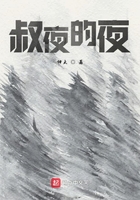From this time, the admiration of learning and genius became almost an idolatry among the people of Italy. Kings and republics, cardinals and doges, vied with each other in honoring and flattering Petrarch. Embassies from rival States solicited the honor of his instructions. His coronation agitated the Court of Naples and the people of Rome as much as the most important political transaction could have done. To collect books and antiques, to found professorships, to patronize men of learning, became almost universal fashions among the great. The spirit of literary research allied itself to that of commercial enterprise. Every place to which the merchant princes of Florence extended their gigantic traffic, from the bazars of the Tigris to the monasteries of the Clyde, was ransacked for medals and manuscripts. Architecture, painting, and sculpture were munificently encouraged. Indeed, it would be difficult to name an Italian of eminence, during the period of which we speak, who, whatever may have been his general character, did not at least affect a love of letters and of the arts.
Knowledge and public prosperity continued to advance together. Both attained their meridian in the age of Lorenzo the Magnificent. We cannot refrain from quoting the splendid passage in which the Tuscan Thucydides describes the state of Italy at that period. "Ridotta tutta in somma pace e tranquillita coltivata non meno ne luogti piu montusoi e piu sterili che nelle pianure e regioni piu fertili, ne sottoposta ad altro imperio che de suoi medesimi, non solo era abbondantissima d' abitatori e di ricchezze; ma illustrata sommamente dalla magnificenza di molti principi, dallo splendore di molte nobilissime e bellissime citta, dalla sedia e maesta della religione, fioriva d' uomini prestantissimi nell' amministrazione delle cose pubbliche, e d' ingegni molto nobili in tutte le scienze, ed in qualunque arte preclara ed industriosa."2
When we peruse this just and splendid description, we can scarcely persuade ourselves that we are reading of times in which the annals of England and France present us only with a frightful spectacle of poverty, barbarity, and ignorance. From the oppressions of illiterate masters, and the sufferings of a degraded peasantry, it is delightful to turn to the opulent and enlightened States of Italy, to the vast and magnificent cities, the ports, the arsenals, the villas, the museums, the libraries, the marts filled with every article of comfort or luxury, the factories swarming with artisans, the Apennines covered with rich cultivation up to their very summits, the Po wafting the harvests of Lombardy to the granaries of Venice, and carrying back the silks of Bengal and the furs of Siberia to the palaces of Milan. With peculiar pleasure every cultivated mind must repose on the fair, the happy, the glorious Florence, the halls which rang with the mirth of Pulci, the cell where twinkled the midnight lamp of Politian, the statues on which the young eye of Michael Angelo glared with the frenzy of a kindred inspiration, the gardens in which Lorenzo meditated some sparkling song for the May-day dance of the Etrurian virgins.
Alas for the beautiful city! Alas for the wit and the learning, the genius and the love!
[Footnote 2: "Enjoying the utmost peace and tranquillity, cultivated as well in the most mountainous and barren places as in the plains and most fertile regions, and not subject to any other dominion than that of its own people, it not only overflowed with inhabitants and with riches, but was highly adorned by the magnificence of many princes, by the splendor of many renowned and beautiful cities, by the abode and majesty of religion, and abounded in men who excelled in the administration of public affairs and in minds most eminent in all the sciences and in every noble and useful art." - Guicciardini, "History of Italy," Book I., trans. Montague.]
"Le donne, e i cavalieri, gli affanni e gli agi, Che ne'nvogliava amore e cortesia La dove i cuor son fatti si malvagi."3
[Footnote 3: "The ladies and the knights, the toils and sports to which love and courtesy stirred our desire there where all hearts have grown so evil." Dante, "Purgatorio,"
Canto 14, ll. 109-111.]
A time was at hand when all the seven vials of the Apocalypse were to be poured forth and shaken out over those pleasant countries - a time of slaughter, famine, beggary, infamy, slavery, despair.












